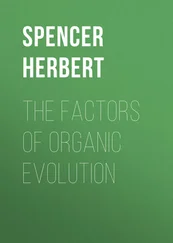A kindred difficulty must be added. The change of verbal meaning from which the myth is said to arise, is a change opposite in kind to that which prevails in the earlier stages of linguistic development. It implies a derivation of the concrete from the abstract; whereas at first abstracts are derived only from concretes: the concrete of abstracts being a subsequent process. In the words of Prof. Max Müller, there are "dialects spoken at the present day which have no abstract nouns, and the more we go back in the history of languages, the smaller we find the number of these useful expressions" ( Chips , vol. ii., p. 54); or, as he says more recently—"Ancient words and ancient thoughts, for both go together, have not yet arrived at that stage of abstraction in which, for instance, active powers, whether natural or supernatural, can be represented in any but a personal and more or less human form." ( Fraser's Magazine , April, 1870.) Here the concrete is represented as original, and the abstract as derivative. Immediately afterward, however, Prof. Max Müller, having given as examples of abstract nouns, "day and night, spring and winter, dawn and twilight, storm and thunder," goes on to argue that, "as long as people thought in language, it was simply impossible to speak of morning or evening, of spring and winter, without giving to these conceptions something of an individual, active, sexual, and at last, personal character." ( Chips , vol. ii., p. 55.) Here the concrete is derived from the abstract—the personal conception is represented as coming after the impersonal conception; and through such transformation of the impersonal into the personal, Prof. Max Müller considers ancient myths to have arisen. How are these propositions reconcilable? One of two things must be said:—If originally there were none of these abstract nouns, then the earliest statements respecting the daily course of Nature were made in concrete terms—the personal elements of the myth were the primitive elements, and the impersonal expressions which are their equivalents came later. If this is not admitted, then it must be held that, until after there arose these abstract nouns, there were no current statements at all respecting these most conspicuous objects and changes which the heavens and the earth present; and that the abstract nouns having been somehow formed, and rightly formed, and used without personal meanings, afterward became personalized—a process the reverse of that which characterizes early linguistic progress.
No such contradictions occur if we interpret myths after the manner that has been indicated. Nay, besides escaping contradictions, we meet with unexpected solutions. The moment we try it, the key unlocks for us with ease what seems a quite inexplicable fact, which the current hypothesis takes as one of its postulates. Speaking of such words as sky and earth, dew and rain, rivers and mountains, as well as of the abstract nouns above named, Prof. Max Müller says—"Now in ancient languages every one of these words had necessarily a termination expressive of gender, and this naturally produced in the mind the corresponding idea of sex, so that these names received not only an individual, but a sexual character. There was no substantive which was not either masculine or feminine; neuters being of later growth, and distinguishable chiefly in the nominative." ( Chips , vol. ii., p. 55.) And this alleged necessity for a masculine or feminine implication is assigned as a part of the reason why these abstract nouns and collective nouns became personalized. But should not a true theory of these first steps in the evolution of thought and language show us how it happened that men acquired the seemingly-strange habit of so framing their words for sky, earth, dew, rain, etc., as to make them indicative of sex? Or, at any rate, must it not be admitted that an interpretation which, instead of assuming this habit to be "necessary," shows us how it results, thereby acquires an additional claim to acceptance? The interpretation I have indicated does this. If men and women are habitually nicknamed, and if defects of language lead their descendants to regard themselves as descendants of the things from which the names were taken, then masculine or feminine genders will be ascribed to these things according as the ancestors named after them were men or women. If a beautiful maiden known metaphorically as "the Dawn," afterwards becomes the mother of some distinguished chief called "the North Wind," it will result that when, in course of time, the two have been mistaken for the actual dawn and the actual north wind, these will, by implication, be respectively considered as male and female.
Looking, now, at the ancient myths in general, their seemingly most inexplicable trait is the habitual combination of alleged human ancestry and adventures, with the possession of personalities otherwise figuring in the heavens and on the earth, with totally non-human attributes. This enormous incongruity, not the exception but the rule, the current theory fails to explain. Suppose it to be granted that the great terrestrial and celestial objects and agents naturally become personalized; it does not follow that each of them shall have a specific human biography. To say of some star that he was the son of this king or that hero, was born in a particular place, and when grown up carried off the wife of a neighbouring chief, is a gratuitous multiplication of incongruities already sufficiently great; and is not accounted for by the alleged necessary personalization of abstract and collective nouns. As looked at from our present stand-point, however, such traditions become quite natural—nay, it is clear that they will necessarily arise. When a nickname has become a tribal name, it thereby ceases to be individually distinctive; and, as already said, the process of nicknaming inevitably continues. It commences afresh with each child; and the nickname of each child is both an individual name and a potential tribal name, which may become an actual tribal name if the individual is sufficiently celebrated. Usually, then, there is a double set of distinctions; under one of which the individual is known by his ancestral name, and under the other of which he is known by a name suggestive of something peculiar to himself: just as we have seen happens among the Scotch clans. Consider, now, what will result when language has reached a stage of development such that it can convey the notion of naming, and is able, therefore, to preserve traditions of human ancestry. It will result that the individual will be known both as the son of such and such a man by a mother whose name was so and so, and also as "the Crab", or "the Bear", or "the Whirlwind"—supposing one of these to be his nickname. Such joint use of nicknames and proper names occurs in every school. Now, clearly, in advancing from the early state in which ancestors become identified with the objects they are nicknamed after, to the state in which there are proper names that have lost their metaphorical meanings, there must be passed through a state in which proper names, partially settled only, may or may not be preserved, and in which the new nicknames are still liable to be mistaken for actual names. Under such conditions there will arise (especially in the case of a distinguished man) this seemingly-impossible combination of human parentage with the possession of the non-human, or superhuman, attributes of the thing which gave the nickname. Another anomaly simultaneously disappears. The warrior may have, and often will have, a variety of complimentary nicknames—"the powerful one," "the destroyer," etc. Supposing his leading nickname has been "the Sun"; then when he comes to be identified by tradition with the sun, it will happen that the sun will acquire his alternative descriptive titles—the swift one, the lion, the wolf—titles not obviously appropriate to the sun, but quite appropriate to the warrior. Then there comes, too, an explanation of the remaining trait of such myths. When this identification of conspicuous persons, male and female, with conspicuous natural agents, has become settled, there will in due course arise interpretations of the actions of these agents in anthropomorphic terms. Suppose, for instance, that Endymion and Selene, metaphorically named, the one after the setting sun, the other after the moon, have had their human individualities merged in those of the sun and moon, through misinterpretation of metaphors; what will happen? The legend of their loves having to be reconciled with their celestial appearances and motions, these will be spoken of as results of feeling and will; so that when the sun is going down in the west, while the moon in mid-heaven is following him, the fact will be expressed by saying: "Selene loves and watches Endymion." Thus we obtain a consistent explanation of the myth without distorting it; and without assuming that it contains gratuitous fictions. We are enabled to accept the biographical part of it, if not as literal fact, still as having had fact for its root. We are helped to see how, by an inevitable misinterpretation, there grew out of a more or less true tradition, this strange identification of its personages, with objects and powers totally non-human in their aspects. And then we are shown how, from the attempt to reconcile in thought these contradictory elements of the myth, there arose the habit of ascribing the actions of these non-human things to human motives.
Читать дальше












